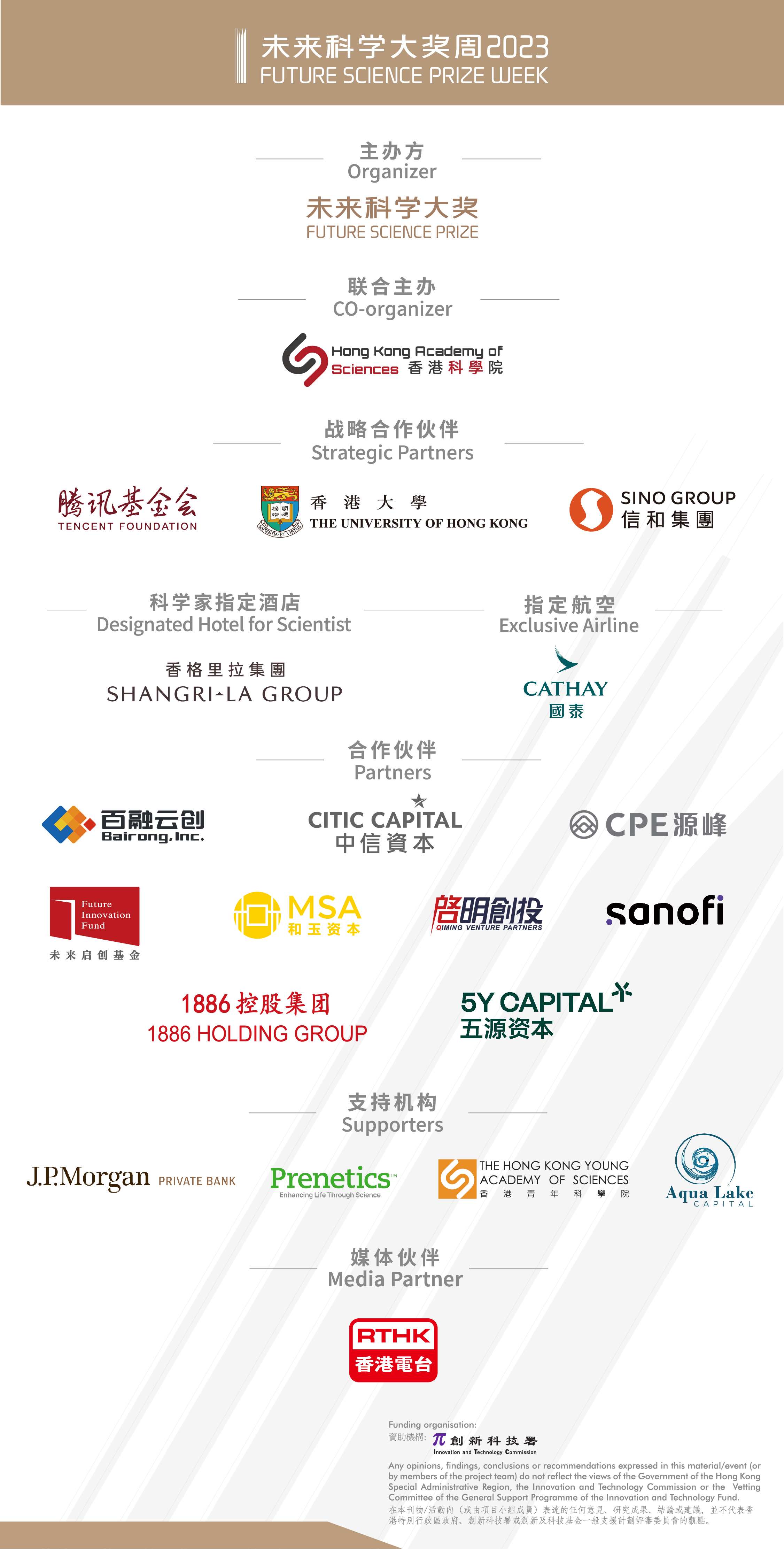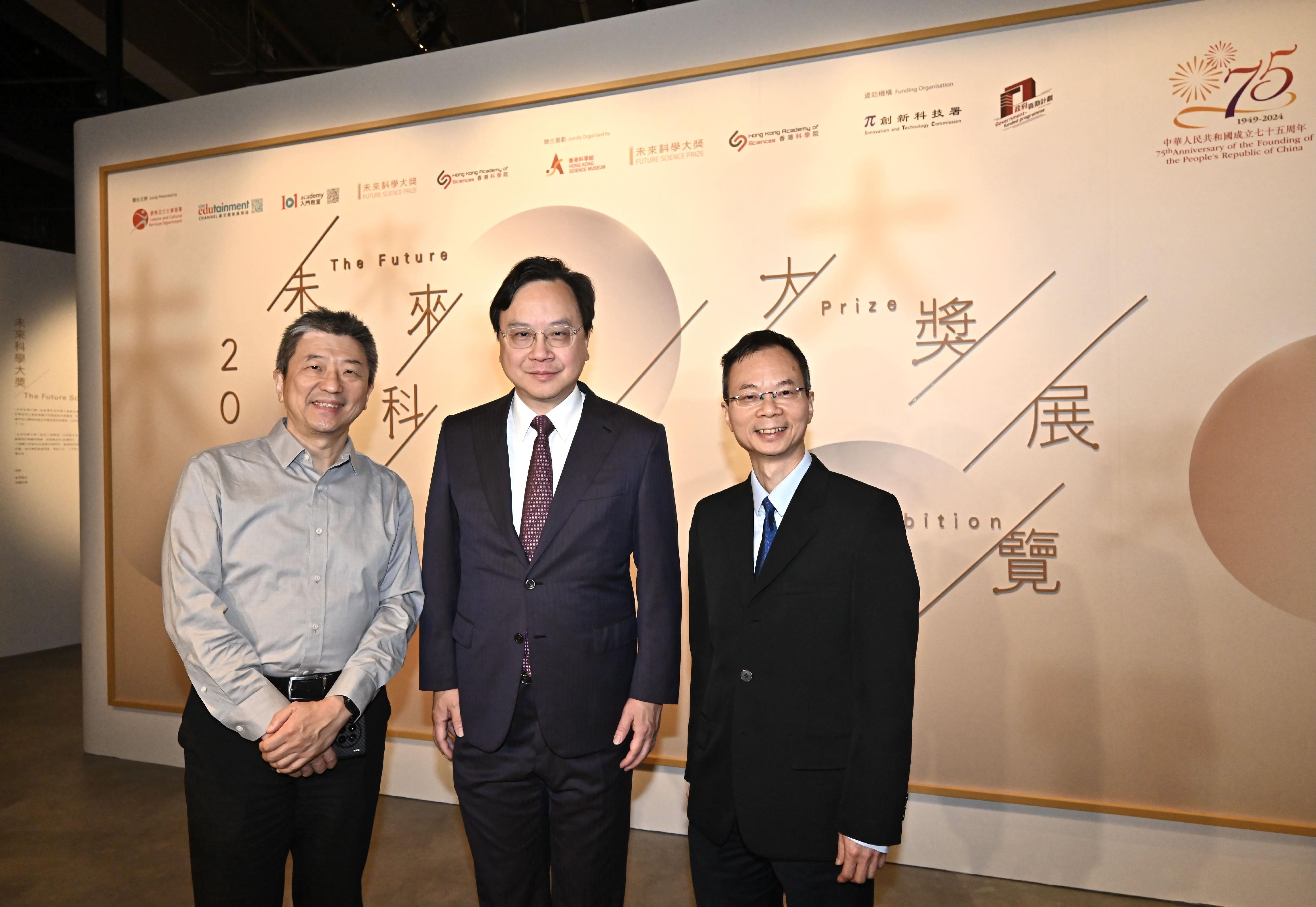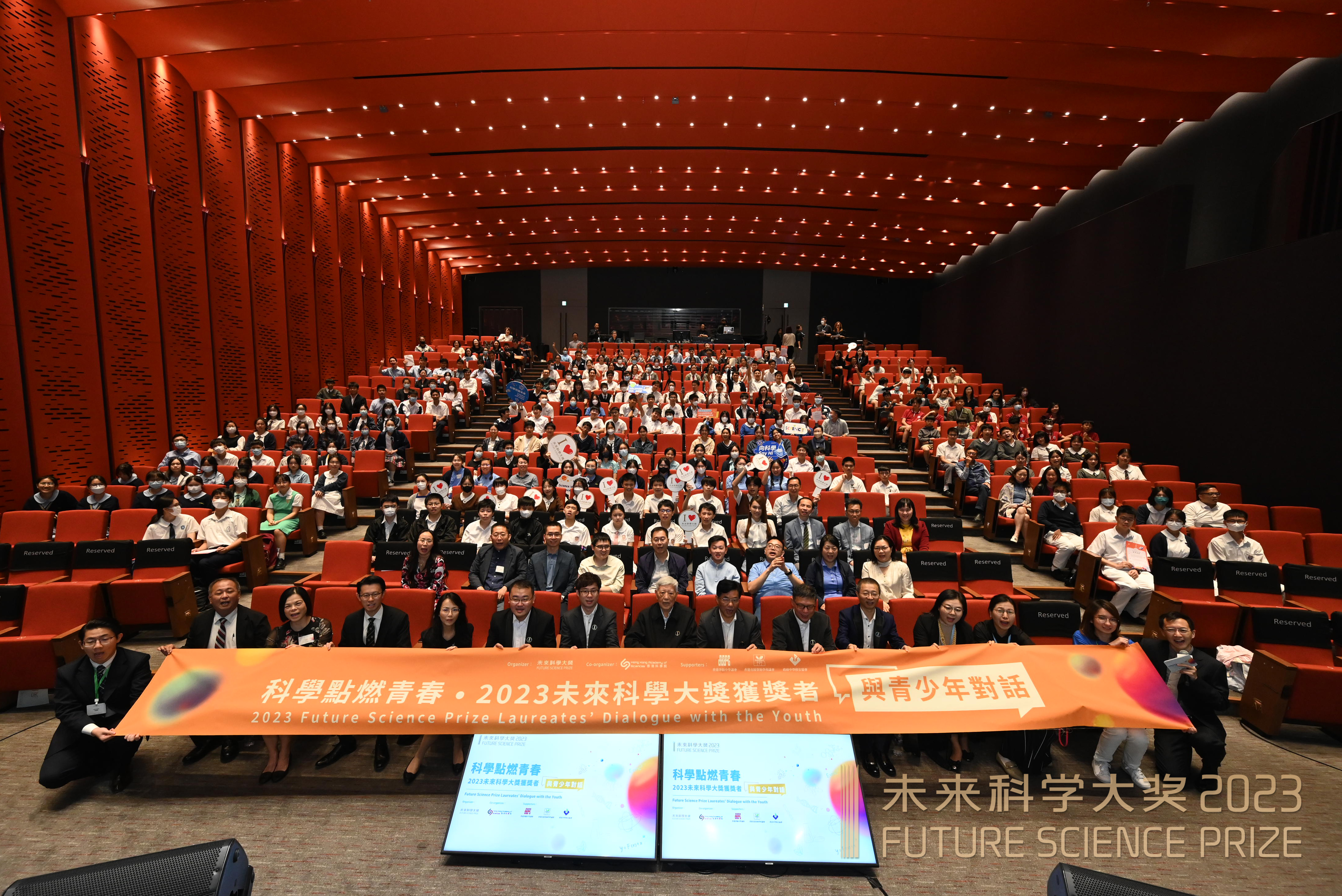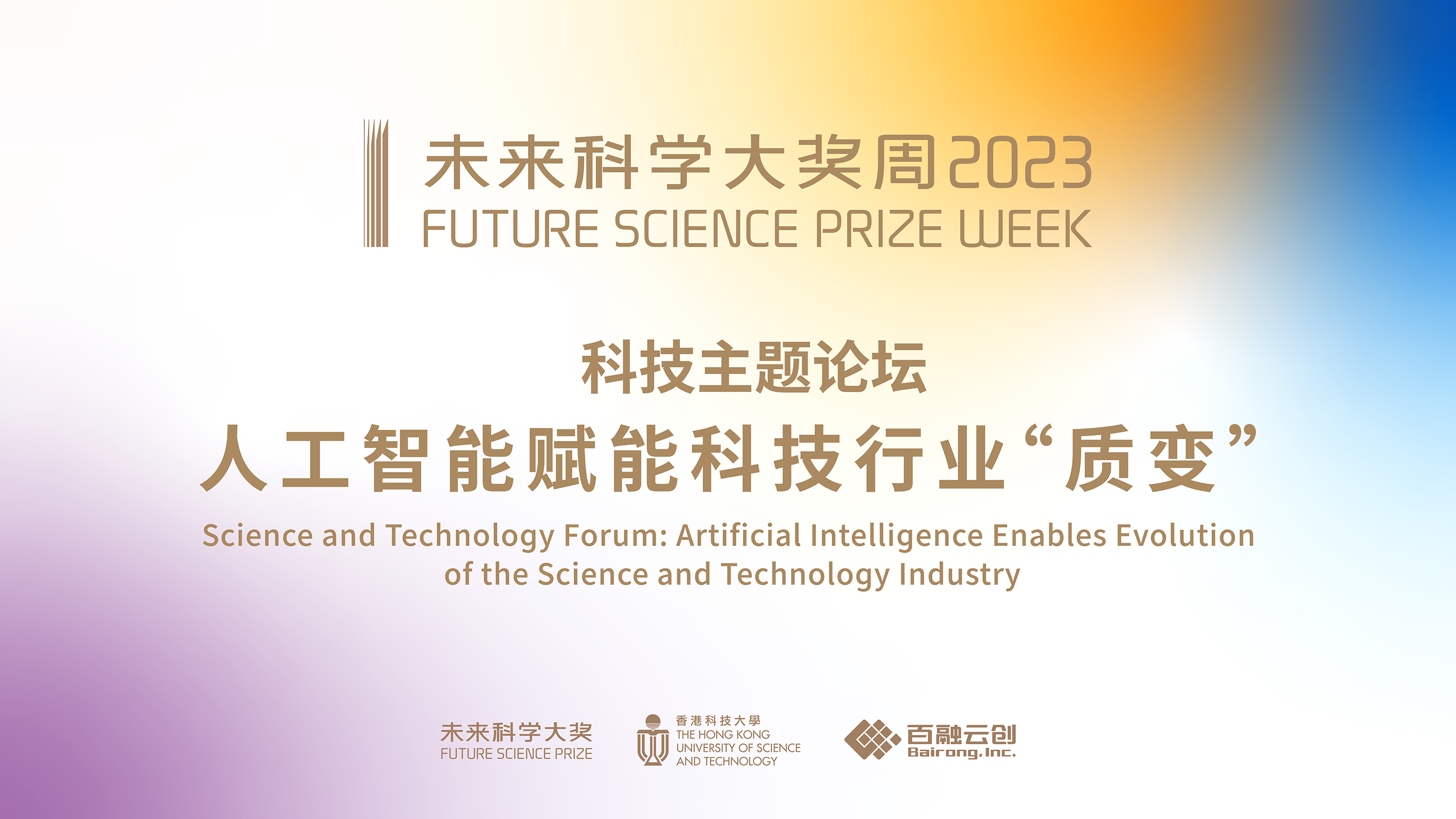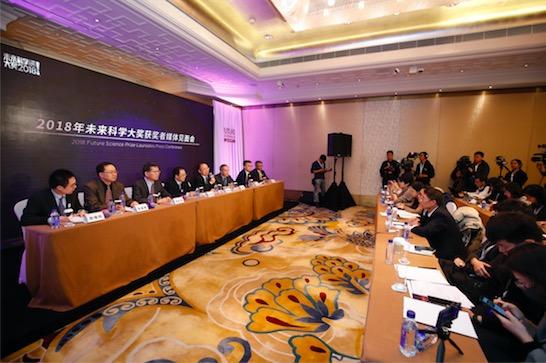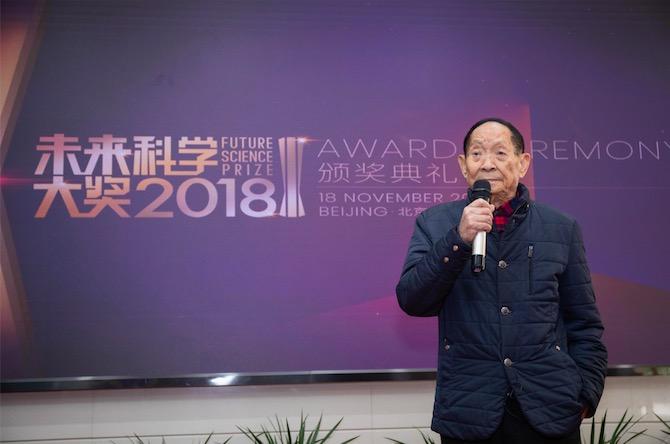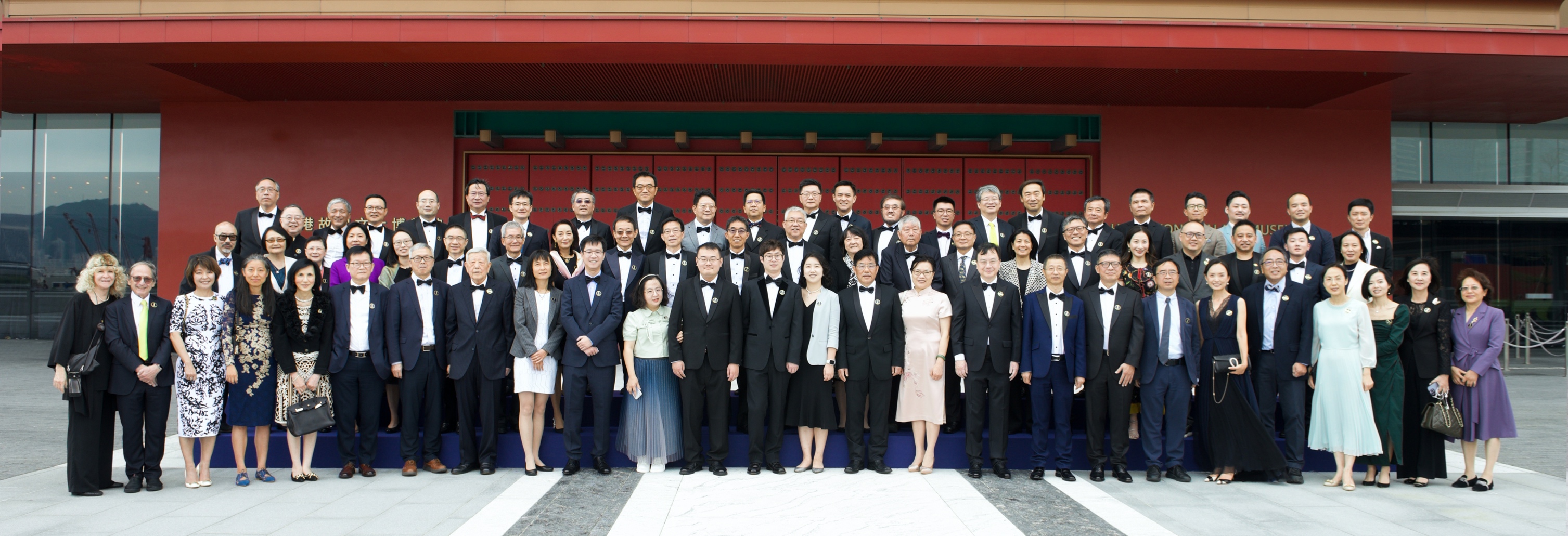
On the afternoon of October 17, the 2023 Future Science Prize Award Ceremony was held at the Hong Kong Palace Museum.
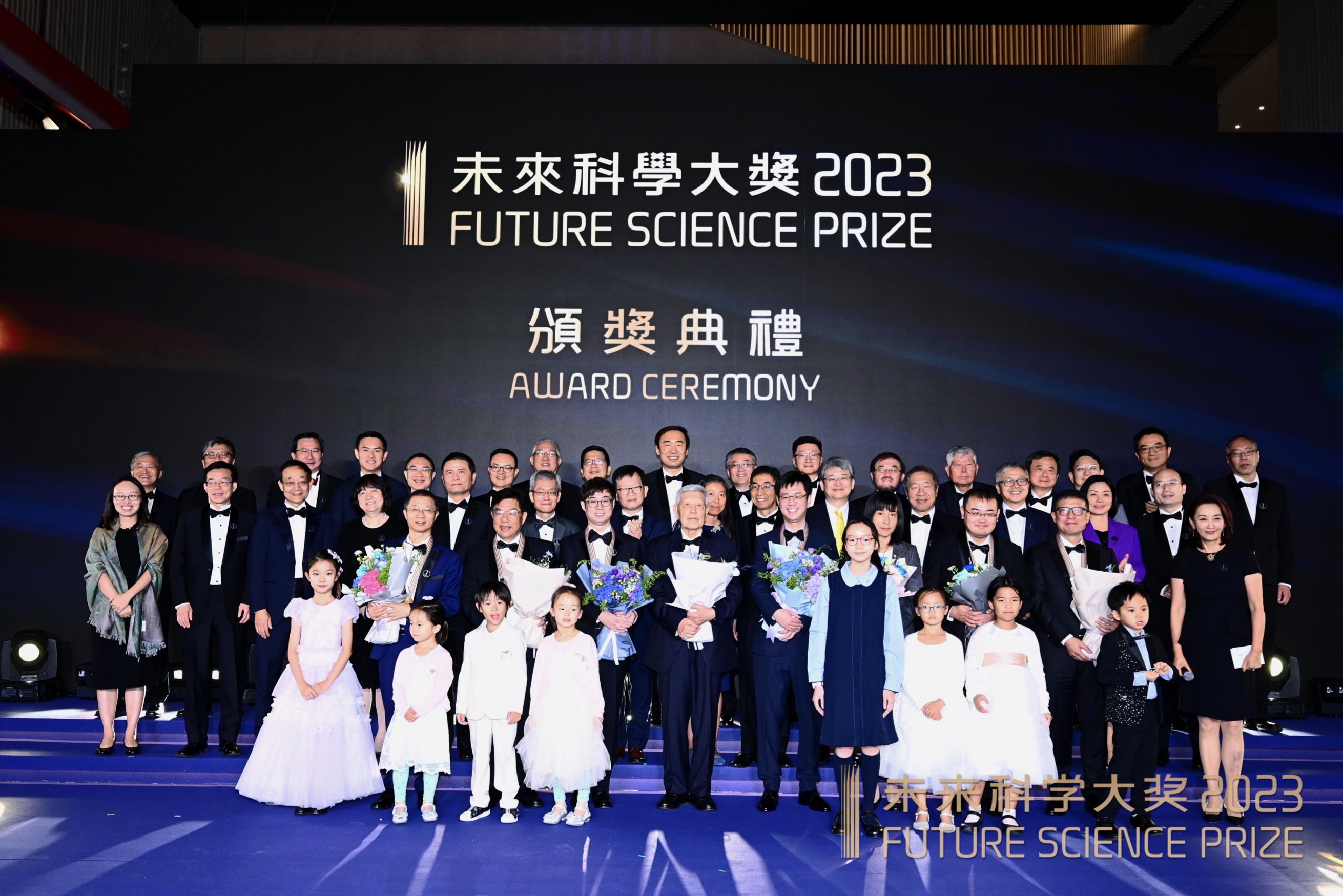
2023 Future Science Prize - Life Science Prize Laureates Jijie Chai and Jian-Min Zhou; Physical Science Prize Laureates Zhongxian Zhao and Xianhui Chen; and Mathematics and Computer Science Prize Laureates Kaiming He, Shaoqing Ren and Xiangyu Zhang attended the Ceremony.
Nearly 300 people, including past laureates of the Future Science Prize, donors of the Future Science Prize, Members of Future Forum Council, Members of the Future Science Prize Science Committee, Supervisory of the Future Science Prize, and representatives of top scientists and young scientists from universities, institutes and scientific research institutes all over the world, gathered to praise the scientific achievements of the laureates! At the same time, millions of viewers from all over the world witnessed this honorable moment through the live broadcast online!
Eight laureates witness the development of science across the times
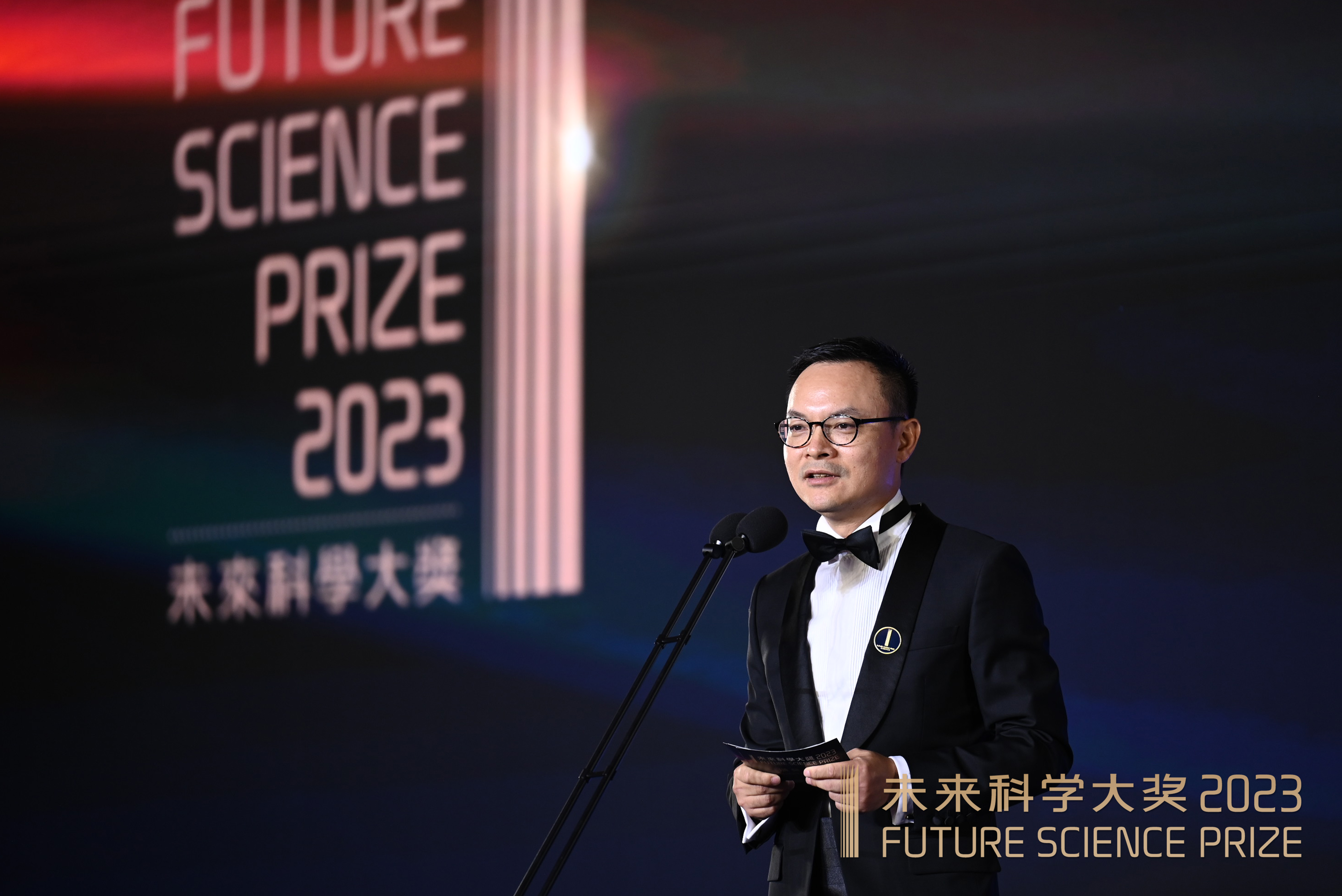
In his speech, Mr Richard Liu, Chairman of 2023 Future Science Prize Donor’s Congress said that it is essential to give more attention and stronger support to scientists, who are the most curious and reflective representatives of mankind, which is also the original intention and significance of the Future Science Prize. Future Science Prize this year focuses on the most cutting-edge breakthroughs in the fields of plant immunology, high-temperature superconductivity, and artificial intelligence, and the laureates include senior scientists as well as a number of young scientists. 2023Future Science Prize witnesses scientists of different ages and generations making groundbreaking contributions to the cause of science that have a global impact. "Science is the key to the future, let's keep this curiosity, imagination, and faith in science, spreading the love of science to more people, influencing more people to participate in the cause of science, and work together to realize the progress of mankind!" Richard Liu said.
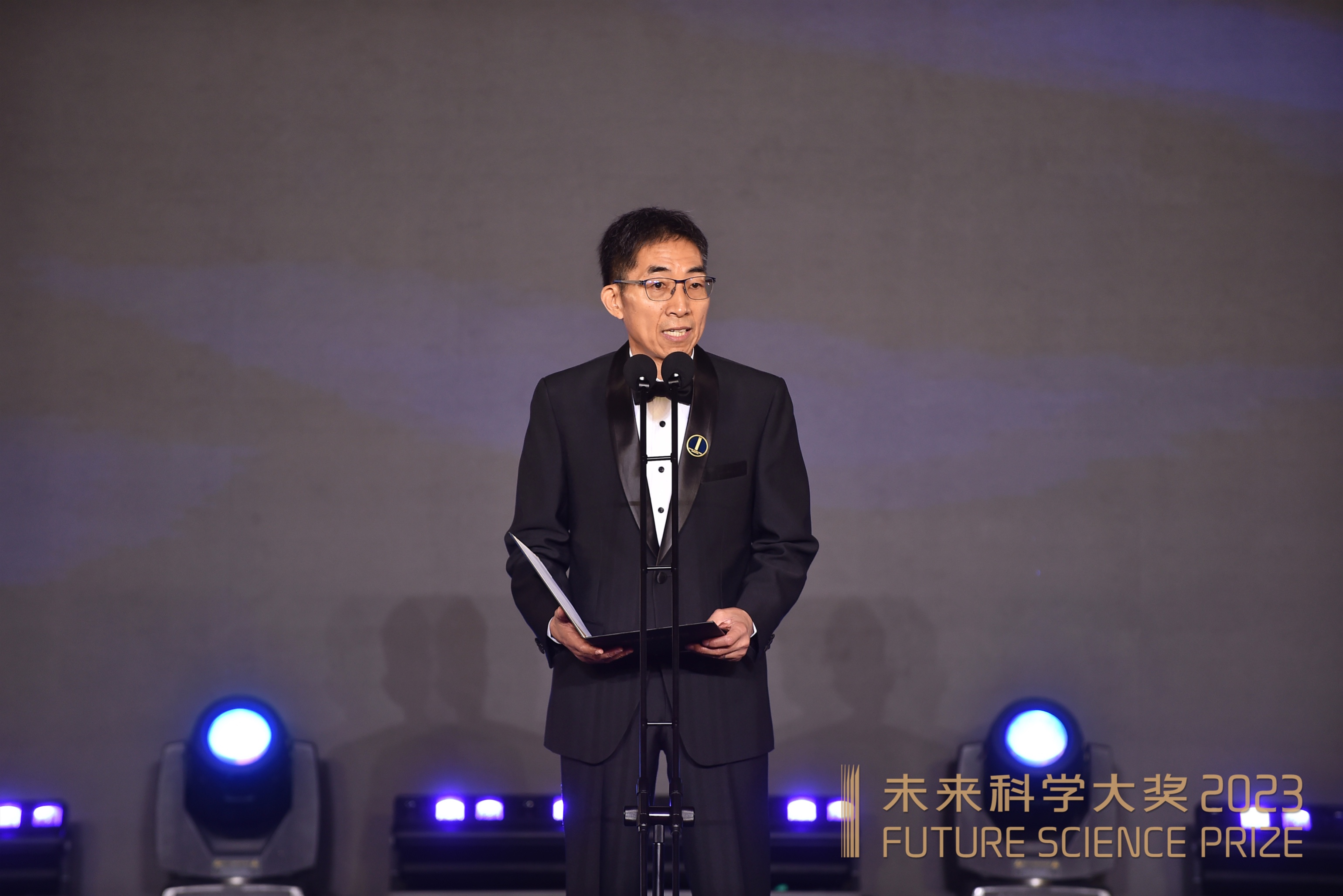
Prof. Kun-Liang Guan, Chairman of 2023 ScienceCommittee of the Future Science Prize, said in his speech that Future Science Prize this year is special. First of all, this year's unprecedented number of eight laureates is the largest number of winners in a single year. Secondly, this year's laureates span multiple generations, with their birthdays ranging from the 1940s to the 1990s, which demonstrates the spanning of time and the continuous development of science. Third, this year's laureates cover a wide range of scientific fields, including plant disease resistance in the life sciences, high-temperature superconductivity in the physical sciences, and artificial intelligence in mathematics and computer science. Their work has led to breakthroughs in scientific research and technological applications in these fields that will profoundly affect our lives and our future.
Honor the awarded scientists
Praise the Spirit of Science
In the presence of guests and millions of online viewers, 2023 Future Science Prize -"Life Science Prize", "Physical Science Prize" and "Mathematics and Computer Science Prize" were presented one after another.
Life sciences, like the source of life, nourish our desire for knowledge and pursuit of truth and suggest to us the endless wonders and possibilities of the living world.
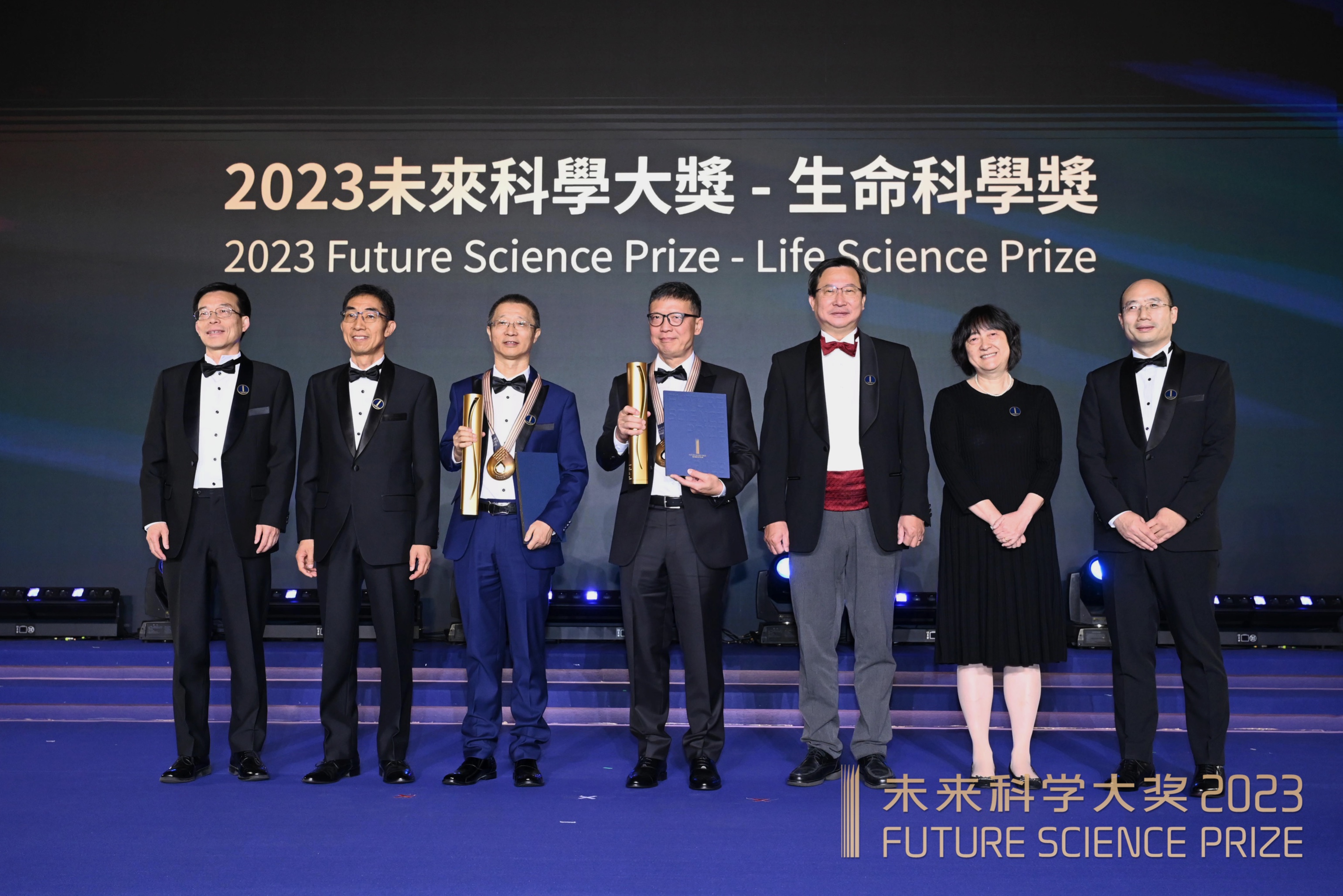
Jijie Chai and Jian-Min Zhou were awarded the Life Science Prize for the discovery of resistosomes and elucidation of their molecular structures and functions in plant immune responses against pathogens. Prof. Xinnian Dong, Member of the Science Committee of the Future Science Prize, read out the citation of the Life Science Prize, and together with Prof. Kun-Liang Guan, Chairman of 2023 Science Committee of the Future Science Prize, and Prof. Hening Lin, Prof. Yi Rao and Prof. Yi Zhang, Members of the Science Committee of the Future Science Prize, presented the trophies, medals, and certificates to the laureates of the Future Science Prize, namely, Jijie Chai and Jianmin Zhou.
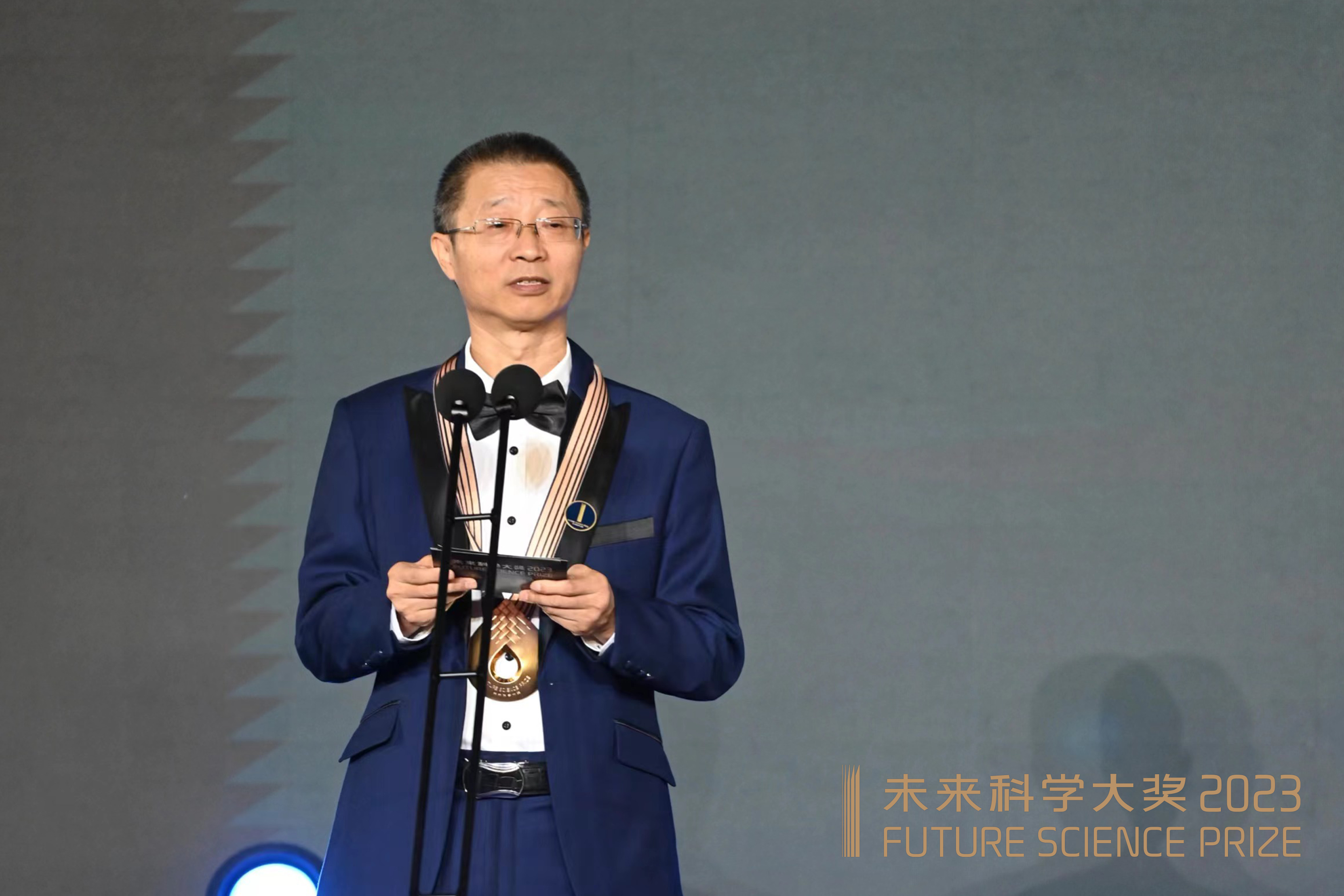
In his acceptance speech, Prof. Jijie Chai expressed his gratitude to the Science Committee, to Prize Donors for their respect for science and the sentiment of basic research, and to his own group members and the team of Prof. Jian-Min Zhou, his partner who has been a pleasant collaborator with him spanning 20 years.
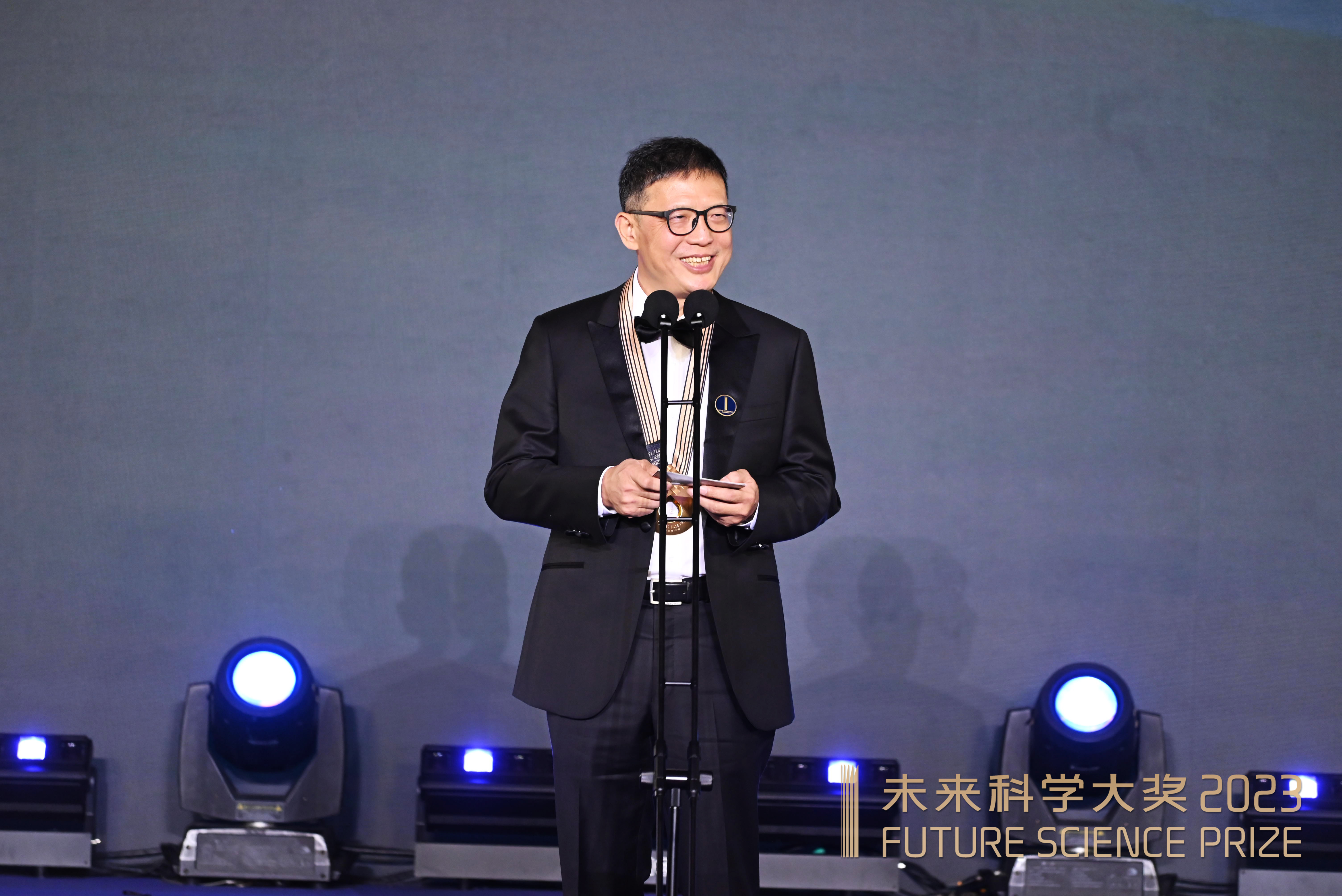
In his acceptance speech, Prof. Jian-Min Zhou said that agriculture is the ballast of China's stable development, and he is especially grateful to the Science Committee of the Prize for their attention to agricultural science!
A major research breakthrough in any physical discipline becomes a landmark change in the development of human society. The physical sciences have revealed many mysteries and given us a deeper understanding of the world.
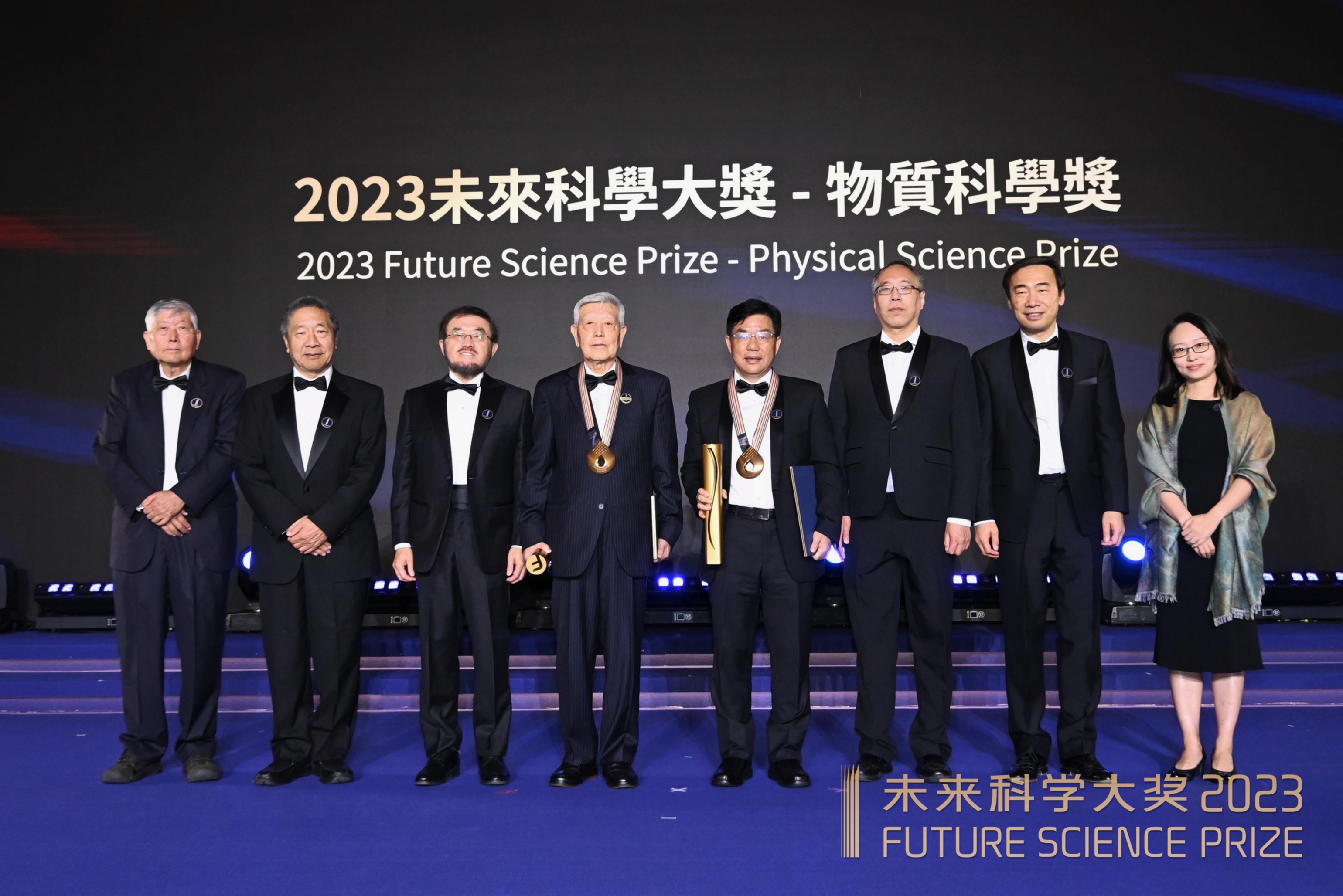
Zhongxian Zhao and Xianhui Chen were awarded - Physical Science Prize for their seminal breakthroughs in the discovery of high-temperature superconducting materials and systematic advancements in elevating the transition temperature. Prof.Xie Chen, Memberof the Science Committee, read out the citationand presented the trophy, medal, and certificate to the two laureates together with Mr. Feng Deng and Mr. Ying Wu, the donors of the Future Science Prize, and Prof. Li Deng, Prof. Douglas Nelson Chao LIN and Prof. Yuk Ling YUNG, the Members of the Science Committee of the Future Science Prize.
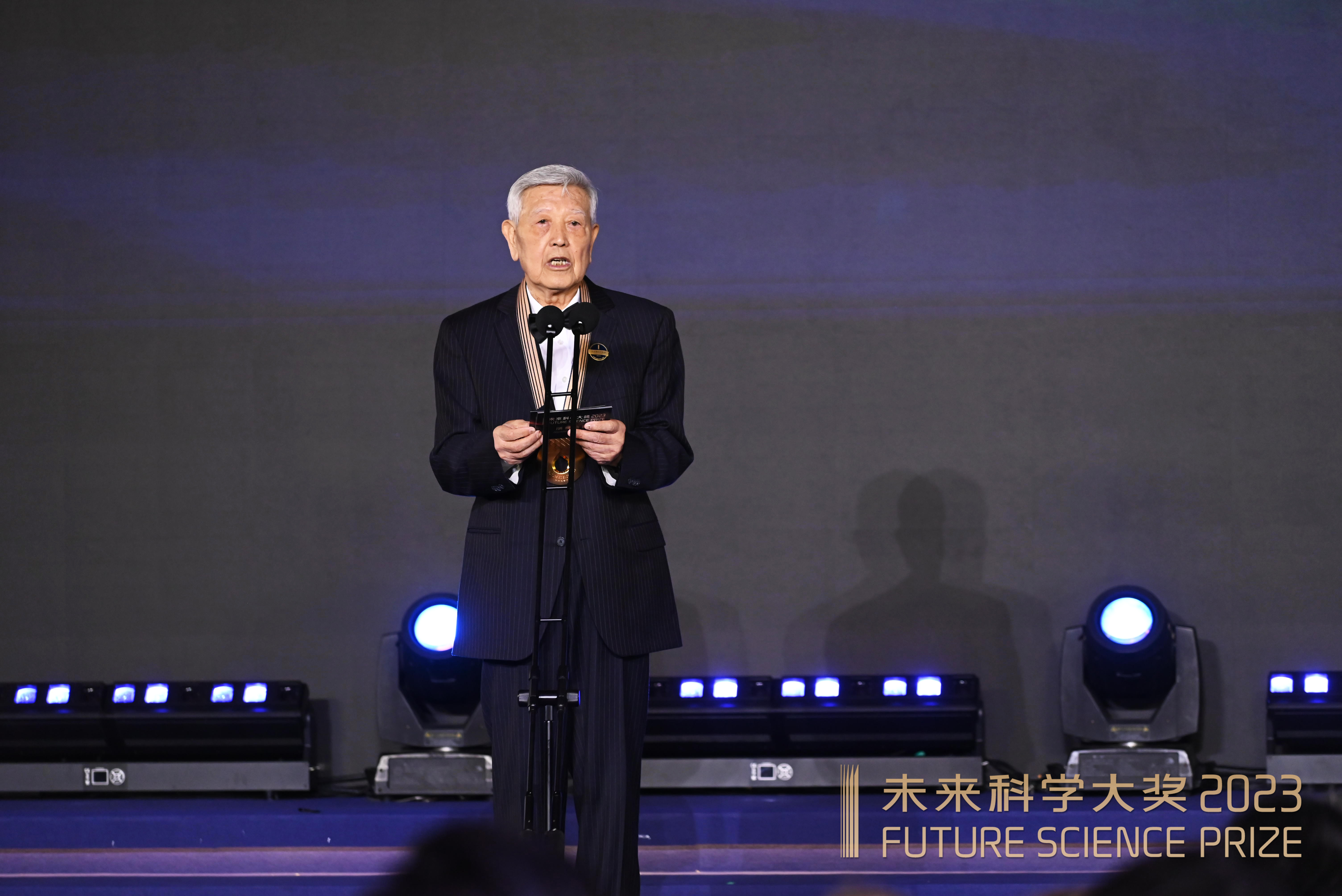
Professor Zhongxian Zhao said in his acceptance speech that superconductivity was discovered in 1911, and the liquefaction of helium was realized before that in 1908, which laid the foundation for the discovery of superconductivity. It was only in 1959 that China had a helium liquefier, a full 50 years later than internationally, and experimental research on superconductors began from then on. Not only did we participate in and contribute to the two major breakthroughs, but we also had a sizable and talented team, which was very gratifying to me. To this day, superconductivity, still a field full of challenges and discoveries, has now been taken up by the younger generation. I am willing to be a paving stone to make new contributions to the promotion of superconductivity in China, in terms of scientific and technological self-reliance, national rejuvenation, and human civilization!
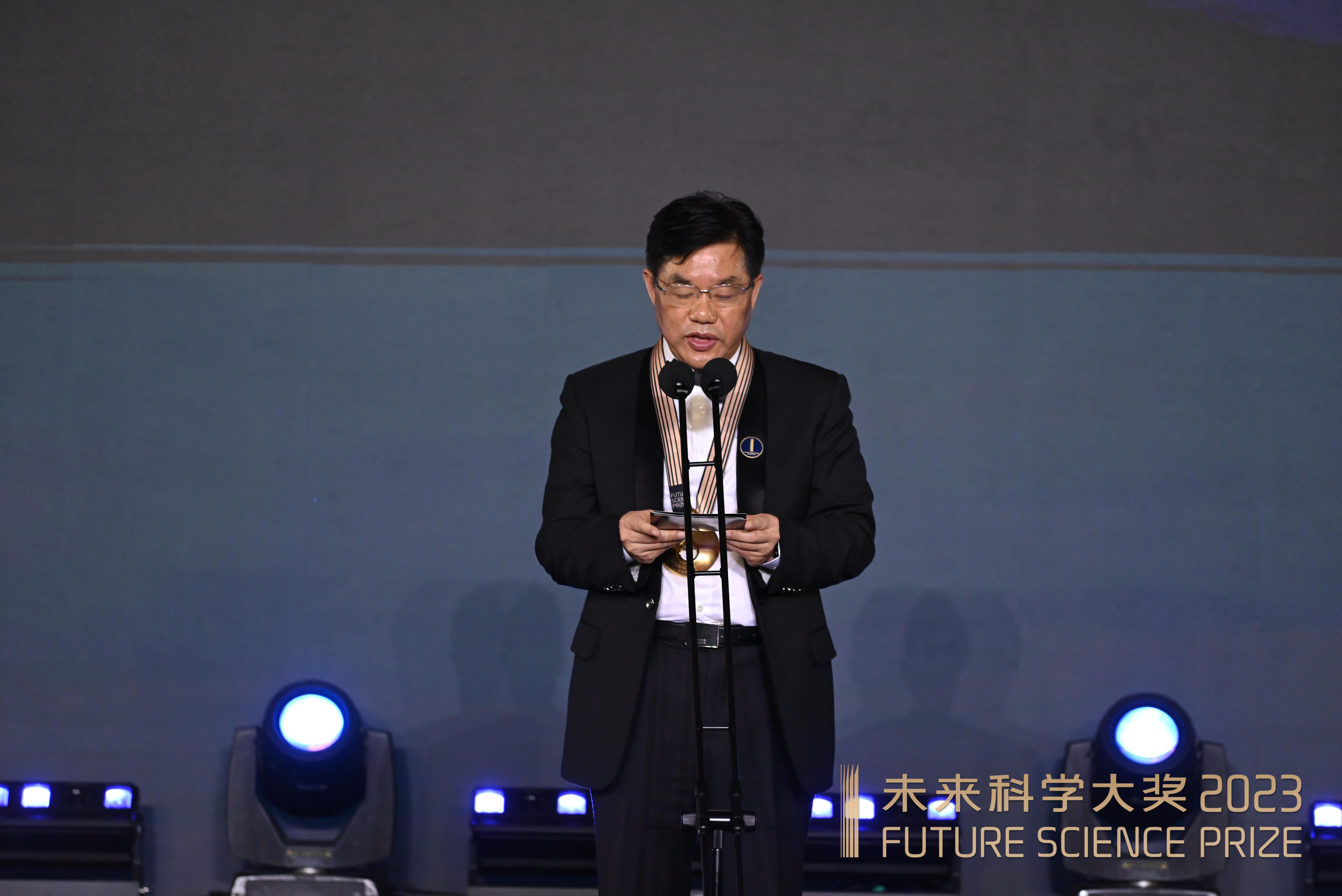
Prof. Xianhui Chen said in his acceptance speech that I can achieve what I have achieved now, thanks to the great era in which we grew up, and thanks to the booming development of the national economy. After so many years of accumulation, deepening understanding and knowledge of high-temperature superconductivity, experimental conditions, and the continuous accumulation of talent team, I believe that our scientists in the future, in the field of superconductors will be found to have a significant impact, and even go to explore the room-temperature superconductors, to contribute to the development of human civilization and science.
Mathematics and computer sciences are both a playground for human thinking, revealing to us the endless possibilities of information and knowledge with endless innovation and in-depth research.
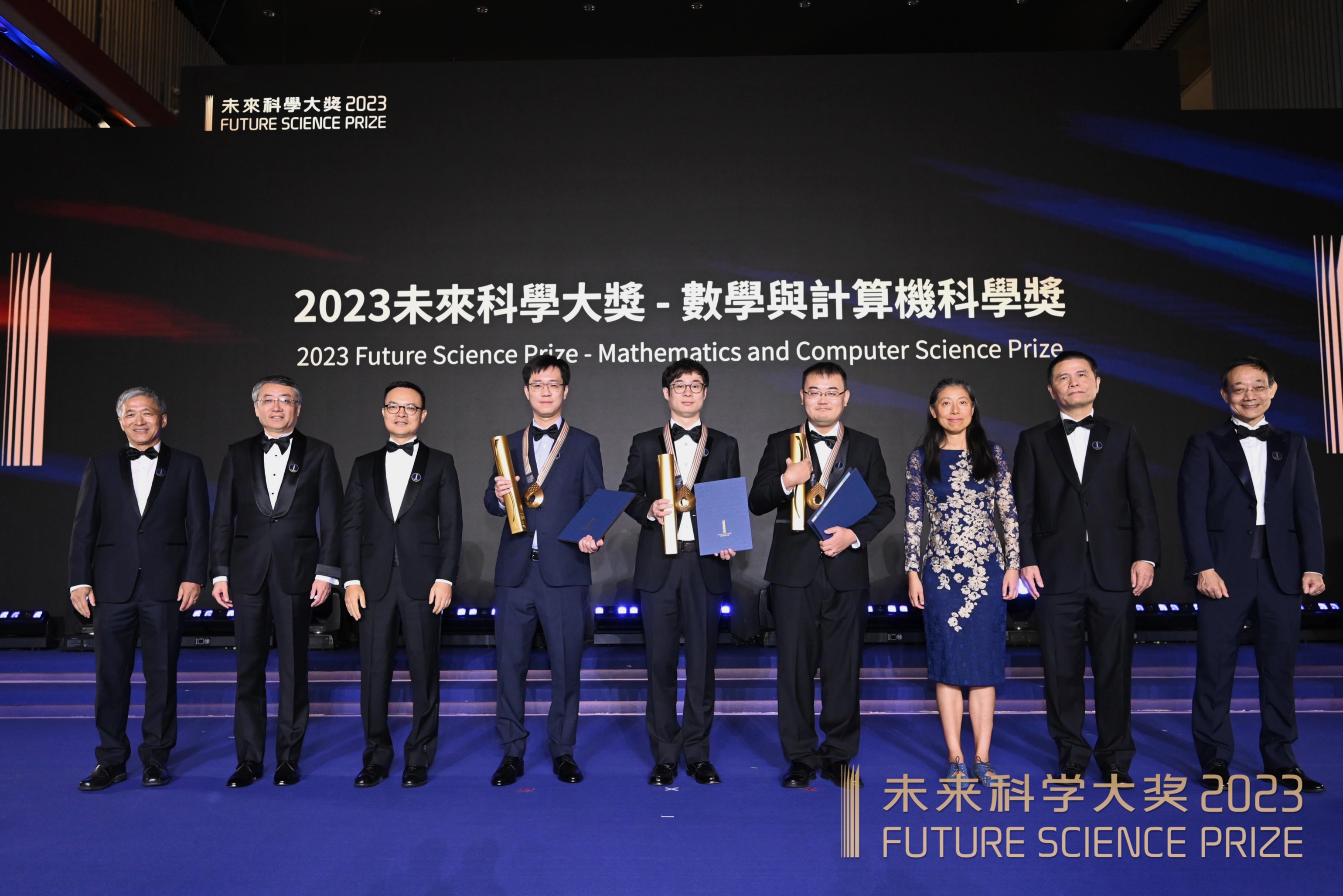
Kaiming He, Jian Sun (deceased), Shaoqing Ren, and Xiangyu Zhang were awarded Mathematics and Computer Science Prize for fundamental contributions to artificial intelligence by introducing deep residual learning. Prof. Dawn Song, Member of the Science Committee of the Future Science Award, read the citation, and together with the donors of the Future Science Prize, Mr. Richard Liu, Mr. Victor Wang , and Mr. David Yu, as well as the members of the Science Committee of the Future Science Prize, Prof. Chi-Wang Shu, Prof. Jeff Xia, and Prof. Shou-Wu Zhang, they jointly presented trophies, medals, and certificates to Dr. Kaiming He, Dr. Shaoqing Ren, and Dr Xiangyu Zhang.
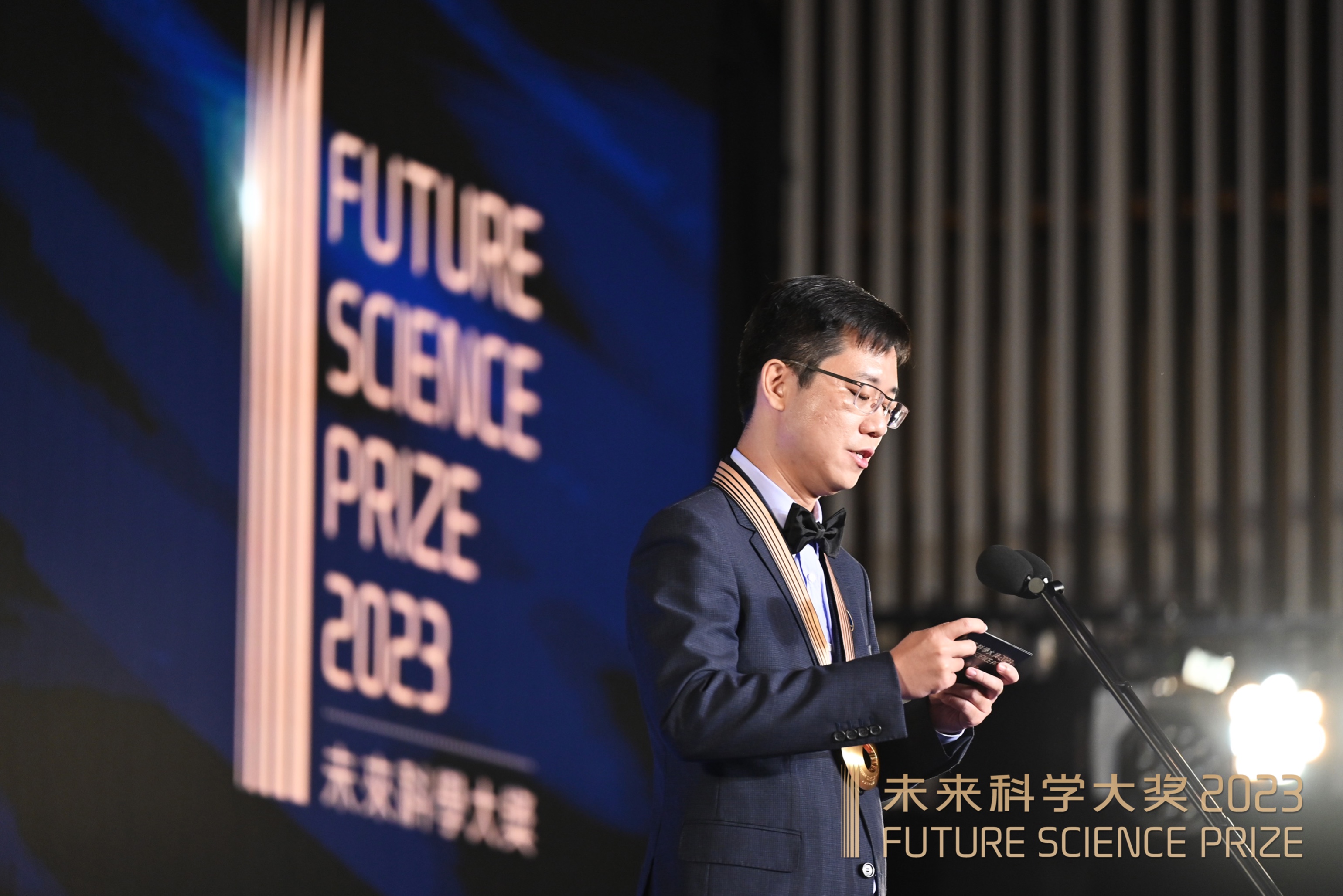
In his acceptance speech, Kaiming He said that in the past decade or so, artificial intelligence has started a huge revolution. This revolution is profoundly affecting all aspects of human social life. I am very lucky to be able to witness and participate in this AI revolution. At the heart of this revolution are artificial neural networks and deep learning, methods that have had many ups and downs over the past half-century or so. One of the major reasons for this is that the depth of artificial neural networks is limited. Our award-winning work, an approach called Deep Residual Learning, can help artificial neural networks break through a long-standing bottleneck in depth. This allows our work to be one of the key foundations of the current AI revolution.
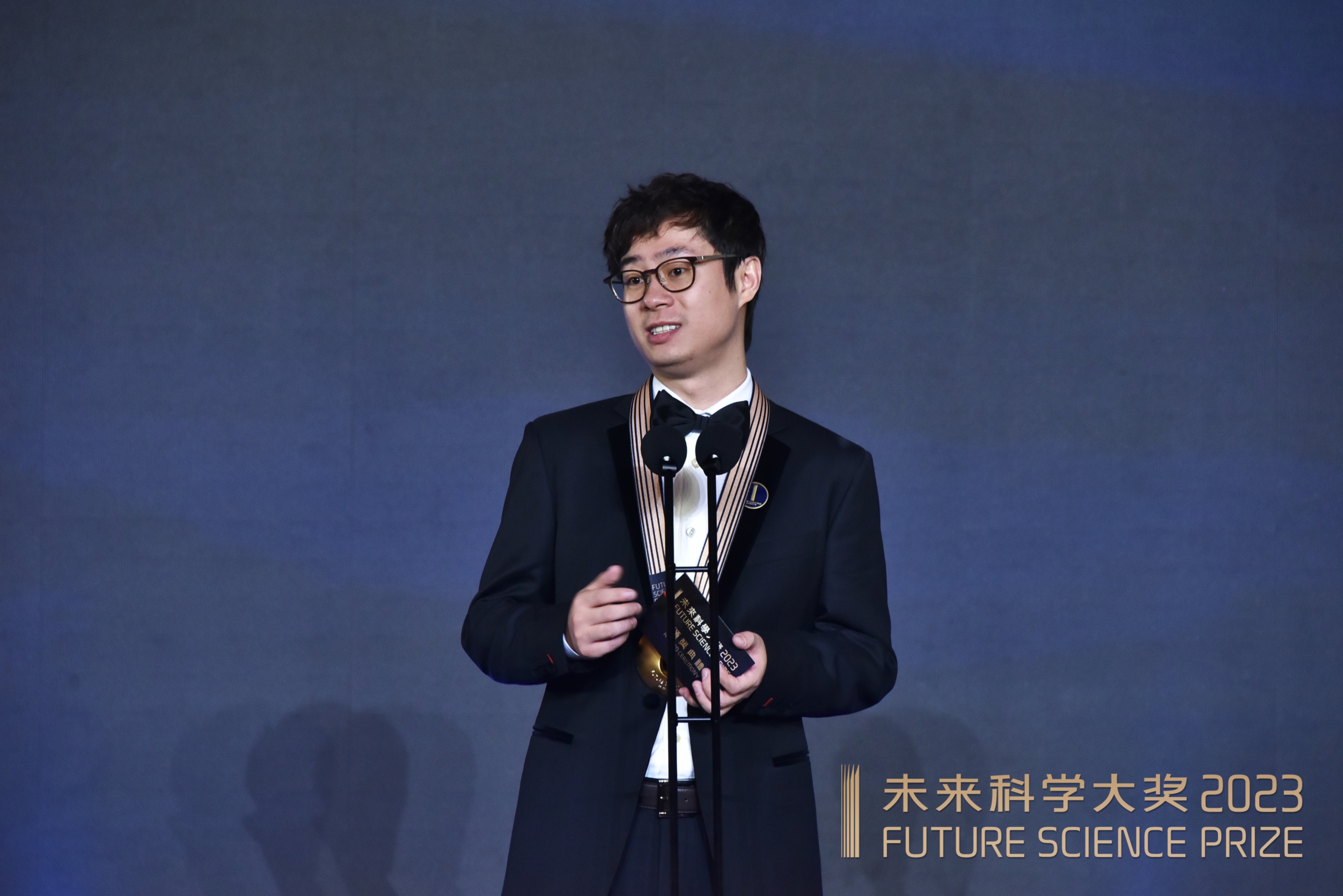
In his acceptance speech, Shaoqing Ren expressed his gratitude to this era for promoting the rapid development of computer-related sciences, the exponential development of the amount of data and computational power has made the impossible possible, and usable has become usable; the development of the open source spirit and open source community has enabled more and more researchers and engineers to stand on the shoulders of their predecessors to explore the higher peaks, and even individual researchers can do good work on their personal computers, and this has also enabled more and more people who are interested in science and technology and exploration to take part in this great era.
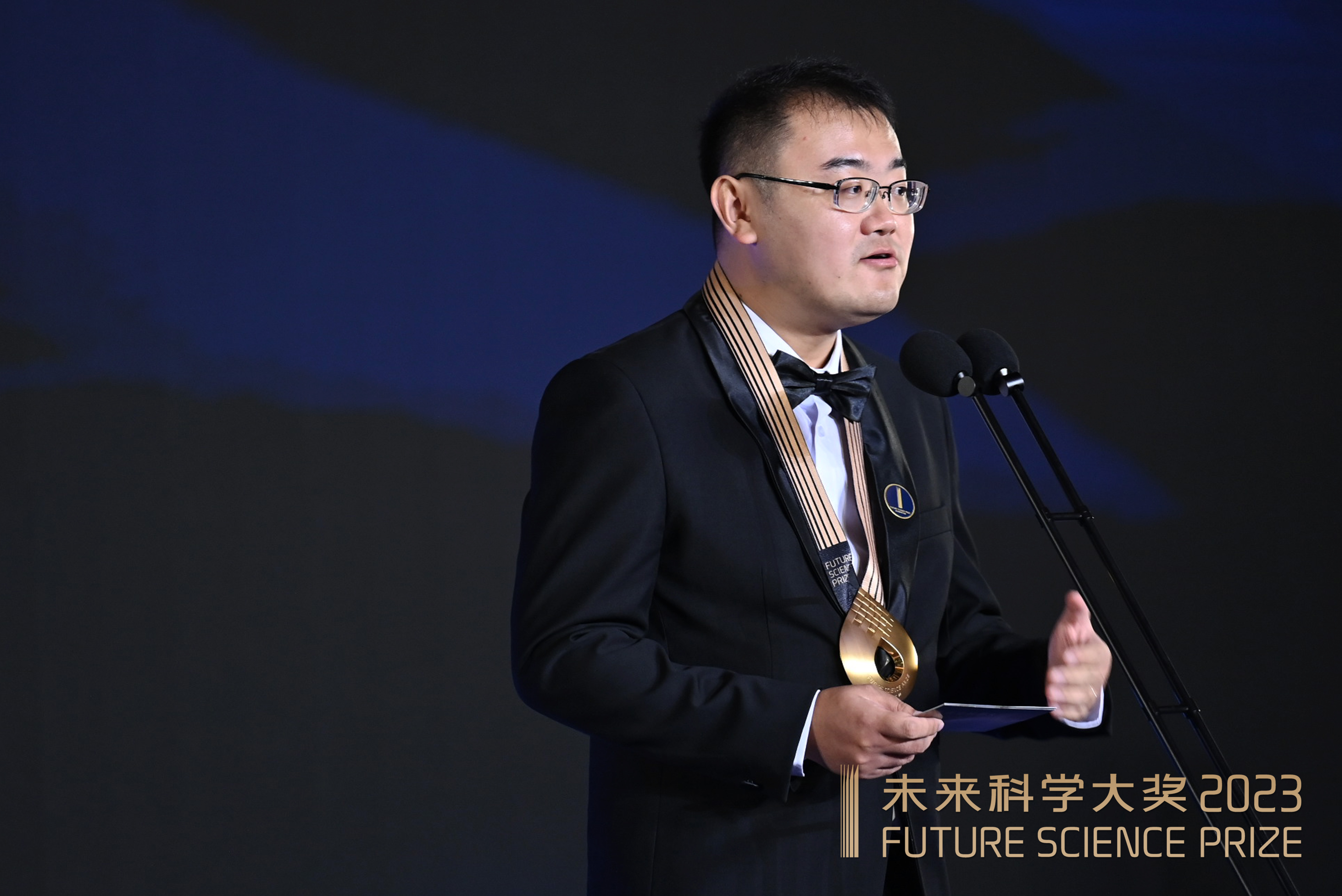
Xiangyu Zhang said in his acceptance speech that looking back at the history of AI, deep learning centered on large-scale deep neural networks has made rapid progress over the past decade, igniting a new round of AI technology revolution. One of the most important questions is how to make neural networks benefit from Scaling up. Our work focuses on the dimension of depth, and we are fortunate to have found a very simple and effective method, such as residual learning, to dramatically increase the depth of neural networks while avoiding the problem of performance saturation. It's great to see that the core ideas of ResNet and residual learning are still widely used today, many years later. For me, it was an honor to contribute to the development of the field early in my academic career.
Future Concert The fusion of science and music
Science studies the world in a rigorous manner, revealing objective laws through experimentation and data analysis. Music, on the other hand, expresses the world in an emotional way, conveying emotions and moods through melody, rhythm, and timbre.
During the Award Ceremony, a unique Future Concert allowed the audience to appreciate the charm of the "interdisciplinary" fusion of science and art.
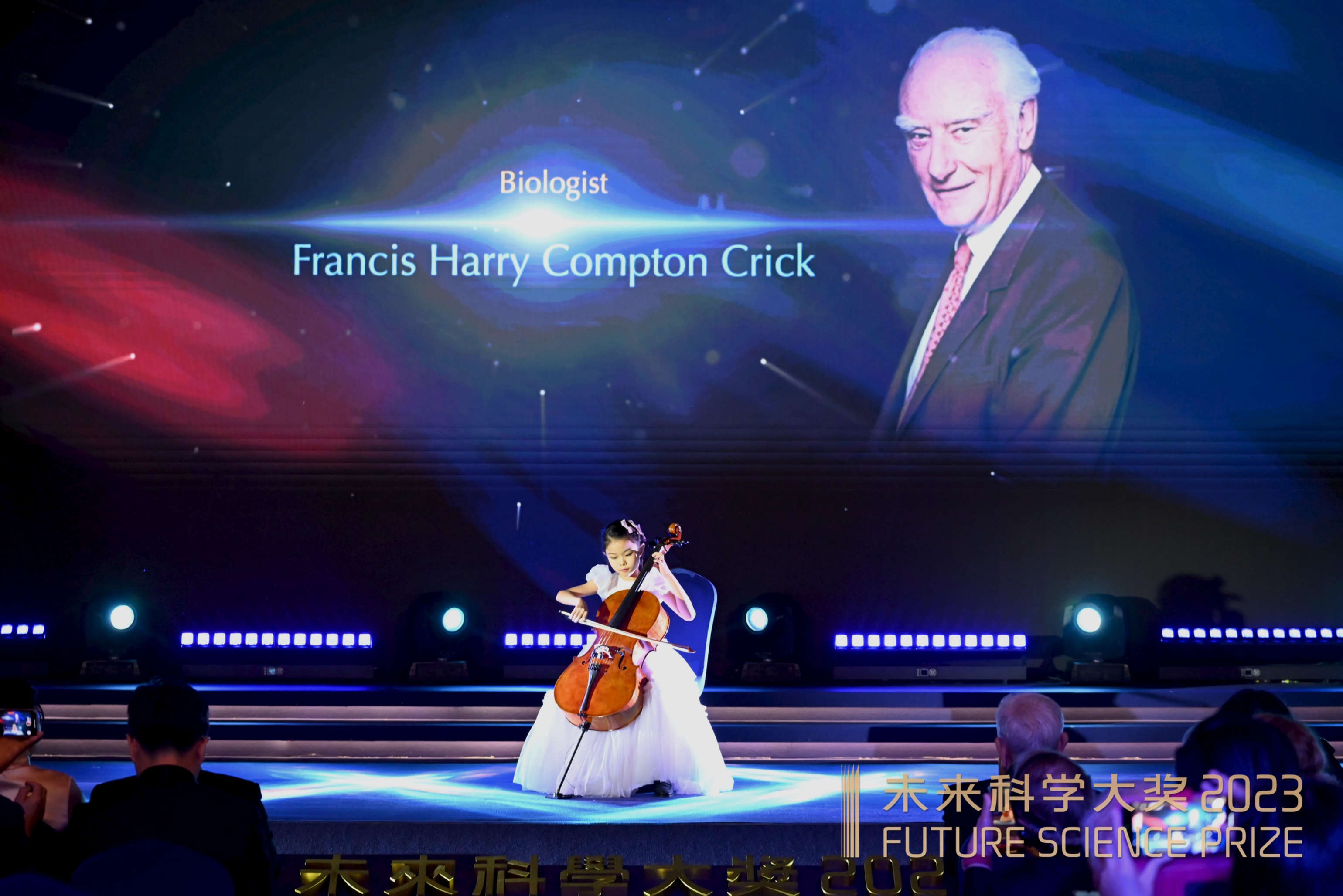
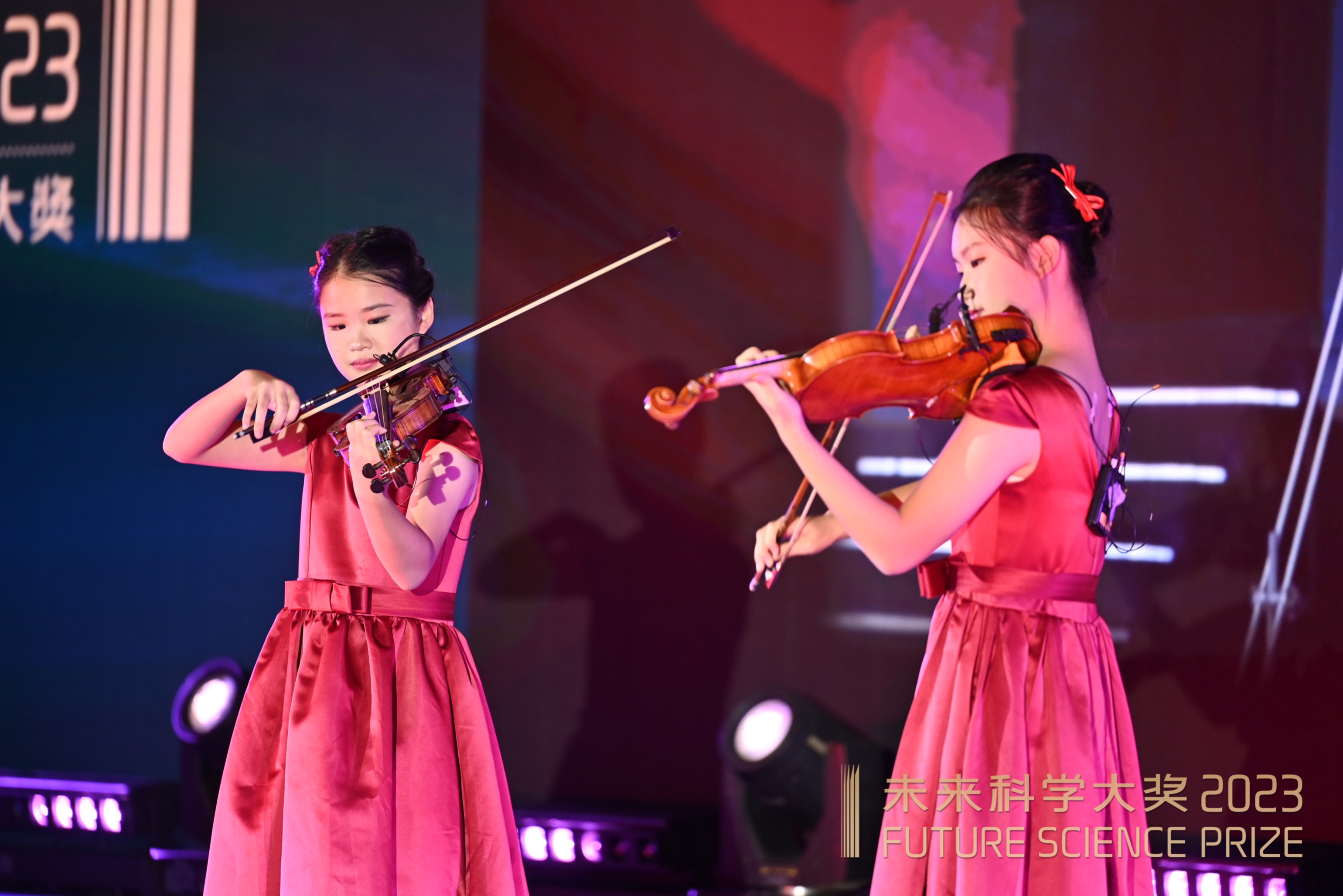
The Shenzhen Poly International Youth String Orchestra - Bach Ensemble and String Orchestra's Marco Reich, Li Xinya, and Kuang Yuxuan brought their cello and violin performances respectively.
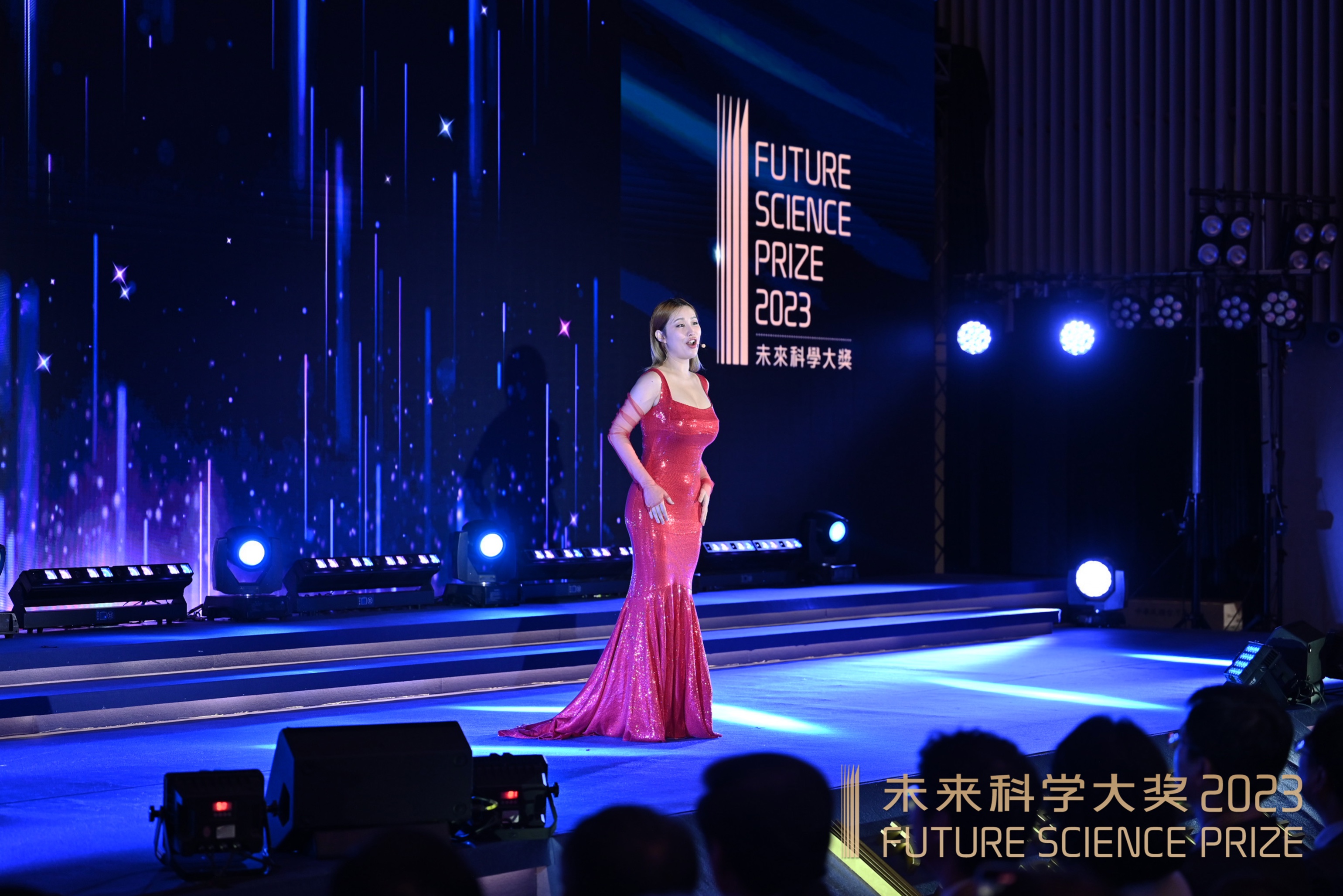
Famous soprano and winner of the World Outstanding Chinese Artist Award, Wang Bingbing, sang "O Mio babbino caro - My Dear Father" live.
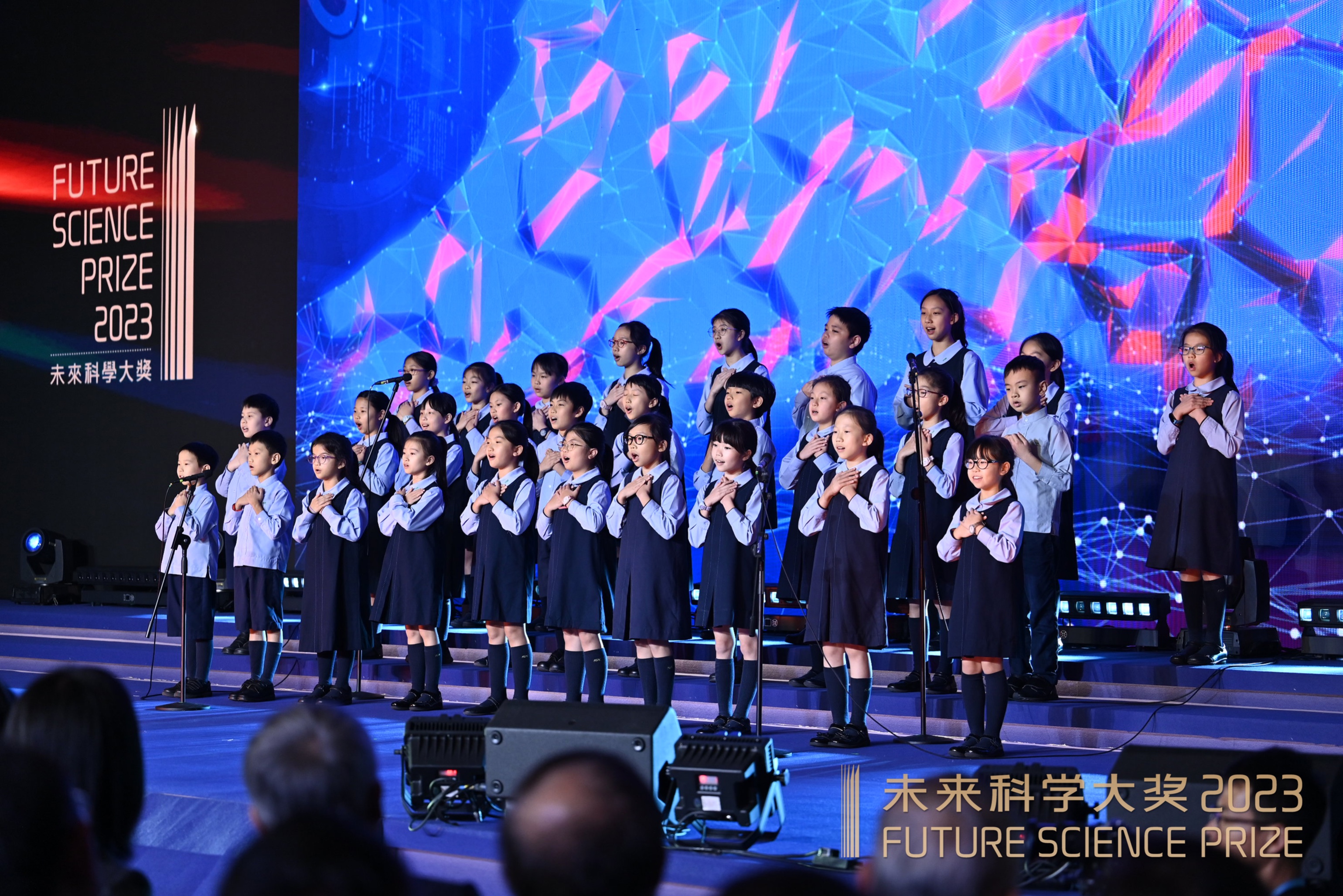
A powerful and emotional song "Under the Lion Rock" was presented by the children of the Fukien Secondary School Affiliated School Choir.
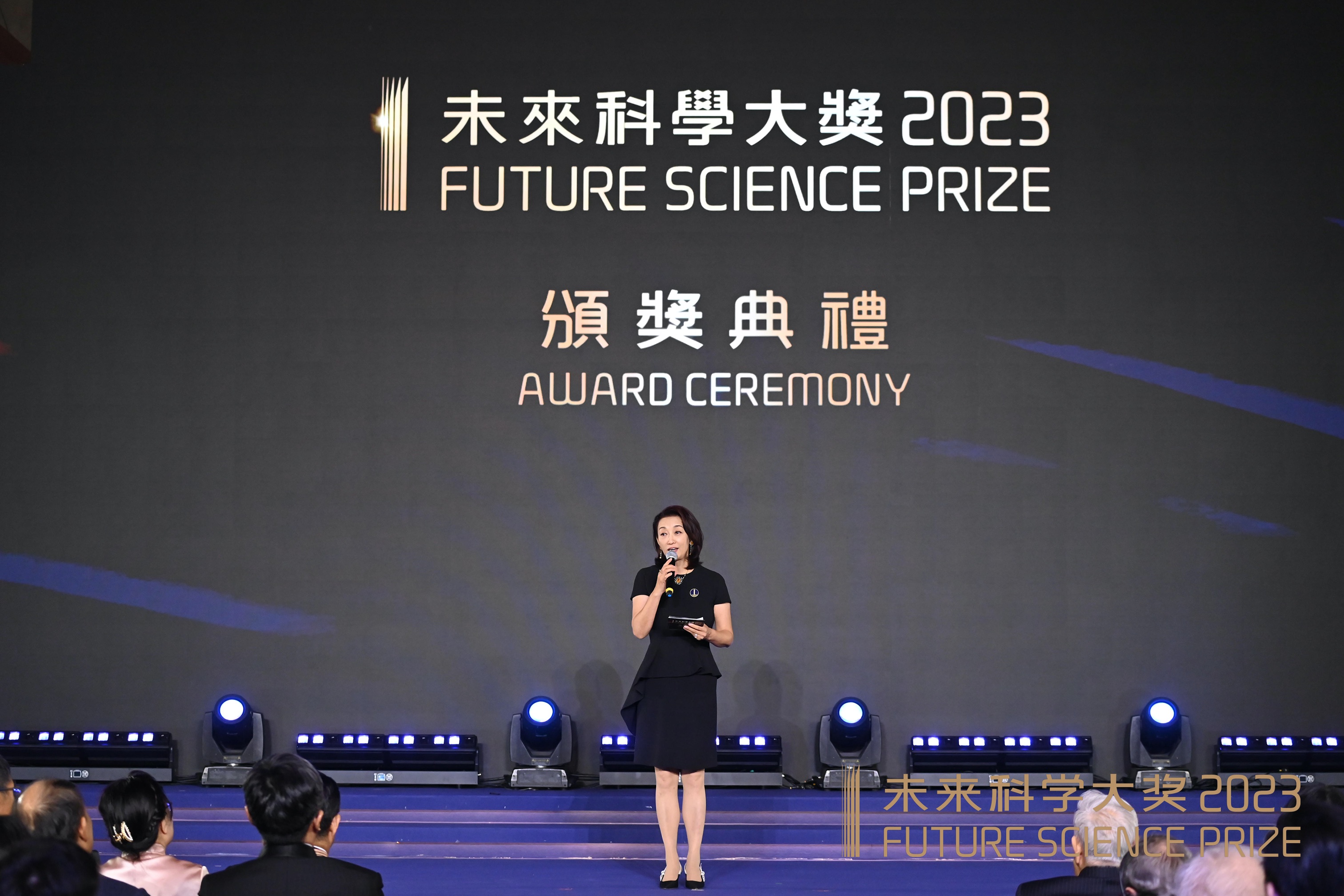
At the end of the Award Ceremony, Cathy Wu, Secretary General of the Future Science Awards Foundation and initiator and Secretary General of the Future Forum, expressed her gratitude in her closing speech to all the Science Committee members and Supervisors, Donors, Future Forum Councils and Institutional Councils, Young Scientist members, all the scientistists participating in the Future Science Prize Week, as well as to the millions of science enthusiasts and viewers online. Shealso expressed her sincere gratitude to the co-organizer of the event, the Hong Kong Academy of Sciences, all strategic partners, designated hotels for scientists, exclusive airlines, partners, supporting organizations, media partners, funding agencies, etc. (see below for more details) for their support.
The Future Science Prize is a privately funded science prize initiated in 2016 by a group of scientists and entrepreneurs. It is established to reward scientists who have made outstanding scientific achievements in the Chinese mainland, Hong Kong, Macao, or Taiwan. Currently, the Future Science Prize consists of three major awards: the Life Science Prize, the Pysical Science Prize, and the Mathematical and Computer Science Prize. To date, 35 laureates have been awarded for the Future Science Prize, all of whom are highly accomplished scientists from the basic and applied research fields of life sciences, physics, chemistry, mathematics, and computer science, who have made original research work that has had a great international impact.
